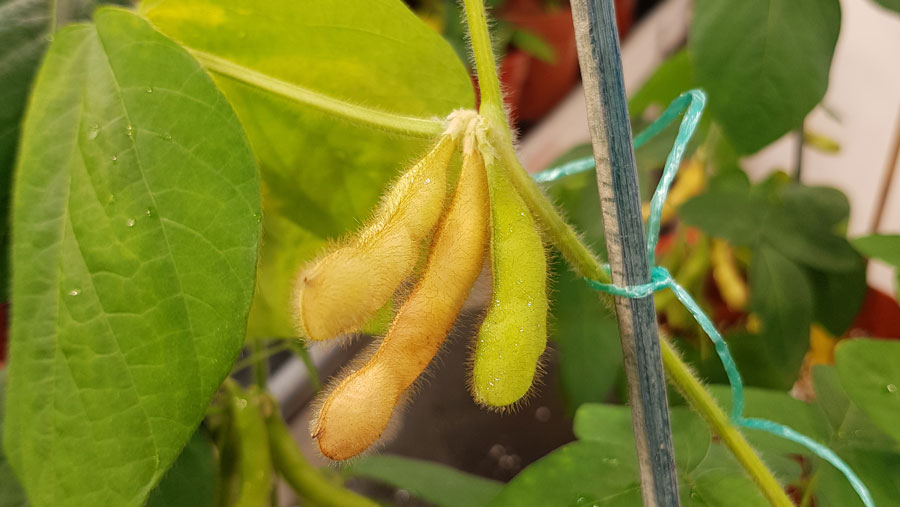UK scientists develop climate-resilient low-water beans
 © University of Sheffield
© University of Sheffield British scientists have engineered beans that could use up to 40% less water and are able to grow better in droughty conditions.
The team of researchers working at the University of Sheffield’s Institute for Sustainable Food said it was a “huge step forward” in the search for climate-resilient crops.
The Pod Yield Project examined the differences between the common bean and the tepary bean, a variety which has been naturally grown in Mesoamerica and Mexico for thousands of years.
See also: UK farmers could soon be growing haricot beans
With its ability to be grown in semi-desert environments the team observed how the tepary bean is better suited to its environment, including its less dense stomata, the microscopic valves on its leaves which are used to control water loss and carbon dioxide intake for photosynthesis.
By manipulating the size and density of stomata, researchers were able to engineer bean crops that can conserve more water and maintain growth under drought conditions for longer than other types of bean, making them ideal for cultivation in hotter climates.
Lead researcher Prof Julie Gray said: “Modern agriculture uses a lot of water – about 70% of the global freshwater – but this resource is diminishing under climate change, and we desperately need to find new ways to allow farmers to reduce irrigation and still provide enough food for our growing population.
“We hope that our work will produce crops that use less water and are better suited to future warmer and drier climates.”
In Latin America, up to 80% of bean yields can be lost with the earlier onset of seasonal droughts. Researchers believe the new bean varieties could save up to 3% of Mexico’s entire agricultural water use – the equivalent of 4.5bn litres of water a year.
Loss of bean yields can also lead to serious economic problems due to the need to then import stocks from other countries. It is hoped that these newly developed beans will combat these issues.
Popularity in Latin America
The findings are especially important given the popularity of the legume food group in Latin America. In 2015, Mexico consumed an average of 8.6kg of beans per person. In comparison, in the UK bean consumption was less than 0.3kg per person in the same year.
Dr Caspar Chater, a research leader in natural capital and plant health at the Royal Botanical Gardens, worked on the project at Sheffield before taking up his position at Kew.
He said: “It is critical we develop climate resilient beans by harnessing natural variation in drought resistance. We need new bean crops that farmers will be excited to grow and consumers will be happy to eat.”
